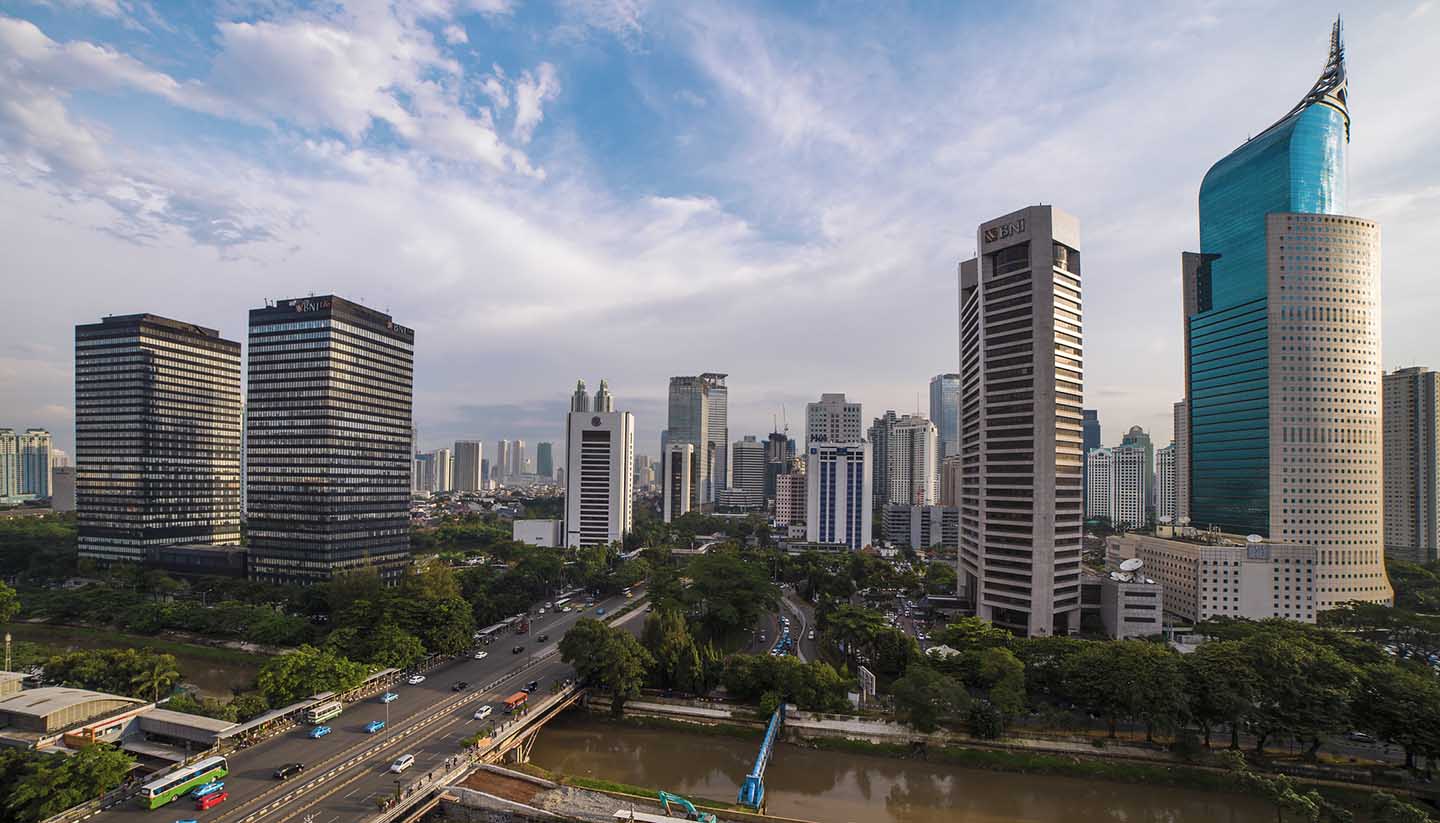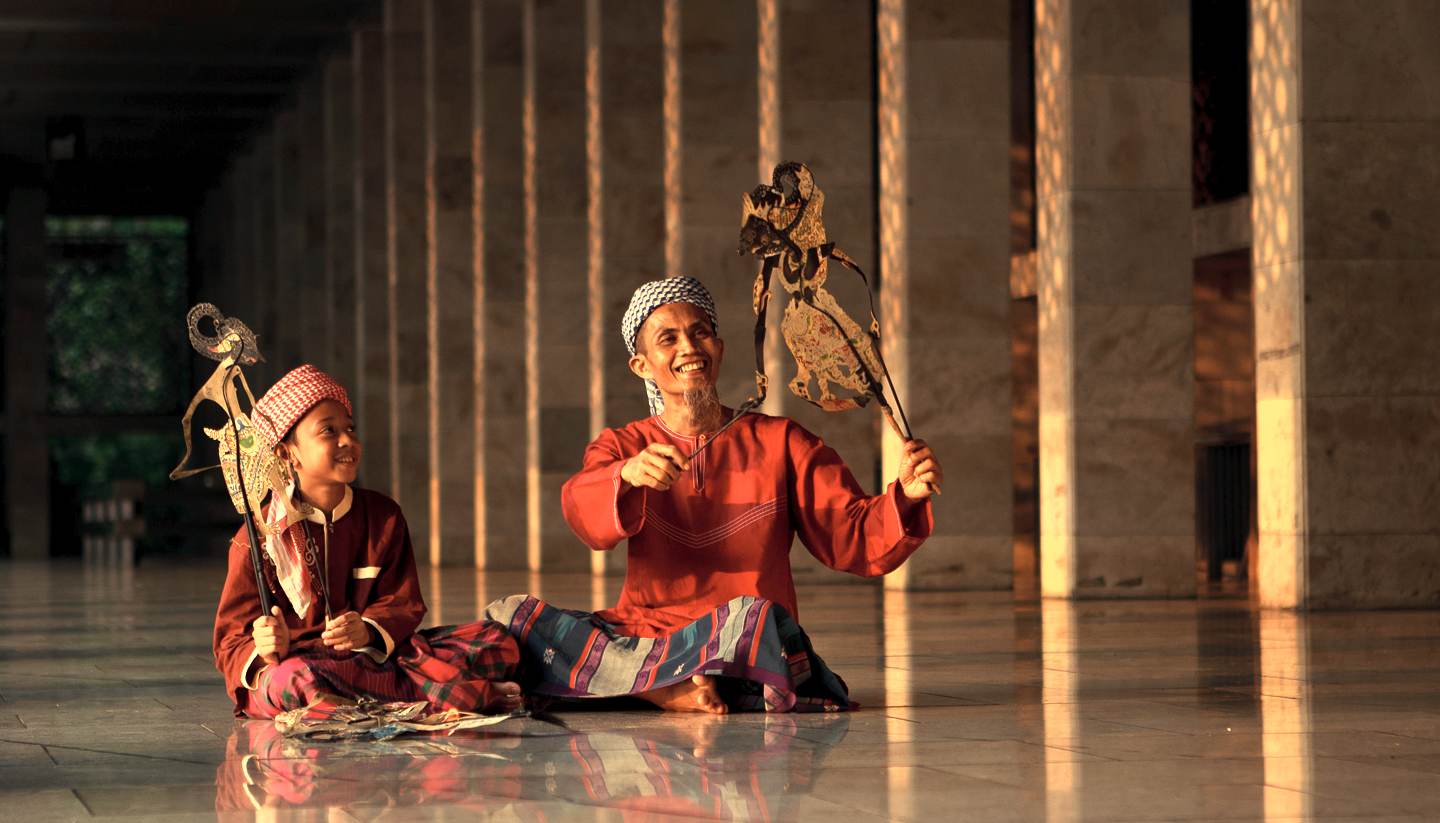Things to see in Jakarta
Attractions
National Museum
Located just west of Monas is The National Museum, also known as Gedung Gajah (Elephant House) for its verdigris-coated bronze elephant out front. An erstwhile societal home for the Dutch intelligentsia, today the museum houses an intriguing melange of over 140,000 cultural artefacts which speak for the nation and its grand narrative of multiculturalism and survival. From prehistoric earthenware pots to coins dating back to the Majapahit Kingdom, the museum is one of the finest in all of South East Asia. Apart from temporary exhibitions, it also holds special events such as a Confucius Day, an eclectic mix of traditional and contemporary arts festivals, and even parkour sessions for the city's cool practitioners.
Address: Gambir, Jalan Medan Merdeka Barat No. 12, North Jakarta, 10110Telephone: +62 21 386 8172.
Opening times:
Tues-Fri 0800-1600, Sat-Sun 0800-1700.
Website: http://www.museumnasional.or.idAdmission Fees:
Yes
Disabled Access: YesUNESCO: No
National Monument
Smack dab in the centre of Merdeka Square, the National Monument (Monas to locals) pierces Jakarta's concrete-filled skyline at 130m (426.5ft). The memorial, topped by a bronze flame coated in lavish gold, is the most important landmark in Jakarta, despite being an architectural excess constructed during a time of widespread poverty. For many it's considered a symbol of Indonesia's struggle against Dutch colonial rule; for others, a vile reminder of then dictator Soeharto's 32-year reign which gave totalitarianism a new meaning in history books. At its base is a museum displaying the history of Indonesia in 51 dioramas. An elevator takes visitors to an observation platform where you can see Jakarta growing vertically by the day.
Address: Gambir, Merdeka Square, Central Jakarta,Telephone:
Opening times:
Daily 0700-0000.
Website:Admission Fees:
No
Disabled Access: YesUNESCO: No
Wayang Puppet Museum
Wayangkulit (shadow puppetry) is one of the oldest storytelling traditions in the world whose evolution could be attributed to Javanese animism, Islamic teachings and Hindu mythology. Sitting on the western flank of Fatahillah Square in Kota, is Jakarta's very own Wayang Museum. Though once a place of Christian worship for Dutch settlers, the old building now offers visitors the chance to marvel one of Indonesia's greatest cultural commodities. Upon entering, you'll see old and dusty puppet cases and labels without English translations, before the second floor displays an international mix of puppets, from countries such as Vietnam, Cambodia and Poland. Enquire at the front desk about the museum's occasional puppet shows.
Address: Pinangsia, Tamansari, Jalan Pintu Besar Utara No. 27, North Jakarta, 11110Telephone: +62 21 692 9560.
Opening times:
Tues-Sun 0900-1500.
Website: http://www.indonesia-travel-guide.comAdmission Fees:
Yes
Disabled Access: NoUNESCO: No
Maritime Museum
South East Asia's lucrative spice trade made Jakarta's ports what they are today. Though it was the Portuguese who first forayed into the archipelago in the early 16th century, the Dutch conquest of Java swelled the coffers of the Dutch East India Company as the islands' bounty of spice was exploited. Much of this history was left forgotten, but the Maritime Museum offers a sore glimpse into Indonesia's dark colonial past. Located near the entrance of Sunda Kelapa, the Maritime Museum may appear to be empty, but there is a lot information to take in, including several perplexing nautical instruments and many traditional Indonesian vessels.
Address: Kota, Jalan Pasar Ikan 1, North Jakarta, 10120Telephone: +62 21 669 3406.
Opening times:
Tues-Sun 0900-1500.
Website: http://www.indonesia-tourism.comAdmission Fees:
Yes
Disabled Access: NoUNESCO: No
Kota
The old town of Batavia, known as Kota, is the epicentre of the Dutch colonial era. Crumbling away are half of its 284 buildings, though a few are still worthy of some rubbernecking. Taman Fatahillah, the main square, is where all the action happens. Rent a traditional bicycle here called an onthel and cruise around Pee-wee Herman style. Next to the square is Café Batavia, a former Dutch East India Company office whose exterior is colonial, while its interior made up of wall-to-wall portraits of old Hollywood actors. West of the cobblestoned-square is Kali Besar, a canal which runs northward. The Chicken Market Bridge (an old drawbridge which dates back to the 17th century) is not too far away, though refrain from looking into its canal as you could still see why previous residents caught all sorts of mosquito-borne diseases. The canal empties out near Sunda Kelapa, Jakarta's old harbour, where Dutch vessels sit in their golden years.
Address: Batavia, , North Jakarta,Telephone:
Opening times:
Daily 24 hours.
Website:Admission Fees:
No
Disabled Access: YesUNESCO: No
Ancol Dreamland
This family beachfront resort is much more than just a relaxing hotel-- it's actually an amusement park that holds the title of largest integrated tourism area in Southeast Asia. It hosts an international championship golf course, a theme park, hotels, and other recreational facilities, including 27 rides and 8 pools at the theme park and water park, respectively. Fantasy World is the main theme park but guests should also check out Atlantis Water Adventure, Ocean Dream Samudra, and SeaWorld Ancol before heading to the beach.
Address: Pinangisa, Tamansari, Jalan Taman Fatahillah 1, West Jakarta, 11110Telephone: +62 21 2922 2222
Opening times:
Daily 24 hours
Website: http://www.ancol.comAdmission Fees:
Yes
Disabled Access: YesUNESCO: No
Jakarta History Museum
Jakarta History Museum (Museum Fatahillah) was originally built in 1707 as the administrative centre for the Dutch East India Company. It was turned into a museum in 1972 and continues to display historical artefacts that depict Jakarta from its beginnings in 1527 through until today. Of its scant collection, the most interesting pieces include a replica of the Tugu inscription dating back to the 5th century, maps and drawings of Jakarta in its heyday, and a copy of the 1522 Padrao monument, which celebrates the friendship between the Portuguese and the Sunda Kingdom.
Address: Pinangisa, Tamansari, Jalan Taman Fatahillah 1, West Jakarta, 11110Telephone: +62 21 692 9101.
Opening times:
Tues-Sun 0900-1500.
Website:Admission Fees:
Yes
Disabled Access: YesUNESCO: No
Istiqlal Mosque
Not far from Merdeka Square is Istiqlal Mosque, the largest mosque in South East Asia. Opened in 1978 during Soeharto's reign, the mosque is noted for having four balconies overlooking a large rectangular prayer hall, held up by 12 round columns. Its dome is conspicuous at a great distance and the central sahn (courtyard) can hold a mind-bending 120,000 worshippers. As in every other mosque in the world, shoes must be taken off at the main entrance and ladies must enter with their heads covered. Unless worshipping, arrive outside ofsalat (prayer) hours as it can get pretty busy. Non-Muslims are refrained from entering certain areas.
Address: Pasar Baru, Sawah Besar, Jalan Taman Wijaya Kusuma, Central Jakarta, 10710Telephone: +62 21 3483 0375.
Opening times: Website:
Admission Fees:
Yes
Disabled Access: YesUNESCO: No
Beautiful Indonesia Miniature Park
Its slogan 'Indonesian Charm' befits one of Jakarta's most enjoyable haunts - The Beautiful Indonesia Miniature Park (Taman Mini Indonesia Indah). Opened in 1975 on a 100-hectare (247-acre) plot of land, the park was designed to be a microcosm of the entire archipelago, with each of Indonesia's original 27 provinces (plus an extra six since 1999) represented by its own pavilion bearing traditional architecture. Inside each pavilion are crafts, clothing and many other cultural tidbits. Water parks, museums and bird sanctuaries are also scattered across mini-Indonesia. Some pavilions offer traditional local cuisine and dance performances from selected provinces. Though it may not shed light on each of Indonesia's 700 languages spoken by 300 ethnic groups, it does serve as an adequate crash course on what to expect should you choose to use Jakarta as a jumping-off point for other Indonesian destinations.
Address: Ceger, Cipayung, Jalan Raya Pondok Gede, East Jakarta,Telephone: +62 21 8779 5616.
Opening times:
Daily 0800-1700.
Website: http://www.tamanmini.com/englishAdmission Fees:
Yes
Disabled Access: YesUNESCO: No
Gereja Sion
Constructed in 1695, the Gereja Sion (Zion Church) is the oldest church in Jakarta. It was first established so that the slaves (who were snatched along Portuguese trading posts between India and Malaysia) had somewhere to worship. Despite its plain look, many boast about its special status. Not only has it held up to tropical storms and invaders, but also against the catastrophic volcanic eruption of Krakatoa in 1883.
Address: Pinangsia, Tamansari, Jalan Pangeran Jayakarta, West Jakarta, 11110Telephone: +62 21 626 7457
Opening times: Website:
Admission Fees:
Yes
Disabled Access: YesUNESCO: No
Tourist Offices
Jakarta Visitor Information Center
Address: , Jakarta Theatre Building, Jalan MH Thamrin 9, Jakarta,Telephone: +62 21 314 2067.
Opening times:
Mon-Fri 0900-1630.
Website: http://www.jakarta-tourism.go.idInformation about Jakarta, attractions, maps, accommodation, and help with public transport can be found at the Jakarta Visitor Information Center. Soekarno-Hatta International Airport Terminal 2D also has a visitor information centre (tel: +62 21 550 7088).



